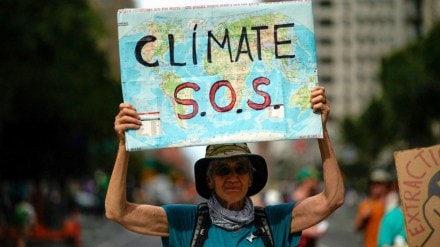Last weekend’s Climate Summit in Brazil’s Amazon city of Belém was unrepresentative, with the rich world’s lack of enthusiasm and presence being conspicuous. United Nations (UN) Secretary-General António Guterres sounded desperate, as he lamented the failure to keep pace with the landmark 2015 Paris Agreement’s long-term goal of limiting global surface temperature rise to 1.5°C above pre-industrial levels. He called it a “moral failure and deadly negligence”.
Of course, there were a few strong words from leaders like Colombian President Gustavo Petro. Showing little remorse, White House spokesperson Taylor Rogers, however, responded to the discourse by stating in an email that “President Trump will not allow the best interest of the American people to be jeopardised by the Green Energy Scam”. Such a divide indeed strikes a sombre tone for the 30th UN Climate Change Conference (COP30), which will start in Belém on Monday.
There can be no denying that climate risks are alarmingly real. Addressing them is the most commonsensical of all things, and vital for the world’s sustainable development and preventing it from being uninhabitable. Lately, the World Meteorological Organization reported that greenhouse gas emissions have risen to a record high. While the 10 hottest years in measured history have been in the past decade, 2025 is poised to be the second or the third warmest year ever.
The world undoubtedly requires a more than faint-hearted approach to salvage confidence in multilateralism to ensure that humanity’s common causes are won. Sadly, the concept that “we are stronger together” is facing the gravest crisis since World War II. The surest manifestation of this is Trump’s policies, like his belittling of the climate goal or forsaking of the global tax frameworks. A rule-based world trade order, strenuously built over decades with the World Trade Organization as its current guardian, has been turned on its head by Trump’s patently indefensible “reciprocal tariffs”. Such wayward policies are being pursued, even as global solidarity is a dire necessity to address not only challenges such as nuclear proliferation, gender inequality, pandemics, and the like, but newer ones like calibration of the development and use of artificial intelligence.
India has rarely been found lacking in such global commitments, despite its unique development challenges as the most populous country that is still grappling with a relatively high incidence of poverty. India’s Ambassador to Brazil, Dinesh Bhatia, said in Belém on Saturday that New Delhi has “steadily met its climate targets ahead of schedule”, by reducing emission intensity of the GDP by 36% between 2005 and 2020. India has met its nationally determined contribution target five years ahead of schedule, and even expanded its forest cover to a quarter of the geographical area.
At the same time, the country hasn’t lost sight of the imperative to meet the fast-rising energy requirements of its high-growth economy. It is rapidly adopting and indigenising green energy of assorted kinds and taking steps to cut their costs, while calibrating the phasing out of fossil fuels. Though grossly sub-optimal, global policies to mitigate climate risks haven’t been without any gains. Europe’s pledge to make itself the first net-zero continent by 2050, for instance, is inspiring, but pales in comparison to India’s resolve to achieve the feat by 2070, given the principle of common but differentiated responsibilities. The real difference will have to come from bridging the yawning gap in climate finance available for developing countries and minimising the harm from environmental depredation to the most vulnerable.
